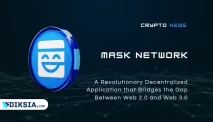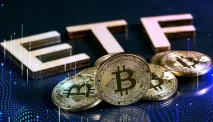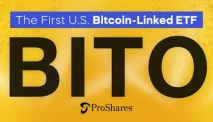Polygon aims to overcome these challenges by offering various scaling and infrastructure solutions that are compatible with Ethereum. These solutions are based on different technologies, such as:
- Plasma: A layer 2 scaling solution that creates child chains on top of Ethereum that can process transactions faster and cheaper. Plasma chains use fraud proofs and data availability checks to ensure the security and validity of transactions.
- Proof-of-Stake: A consensus mechanism that uses validators who stake tokens to secure the network and validate transactions. Proof-of-Stake chains can operate as sidechains or standalone chains that can have their own features and rules.
- ZK rollups: A layer 2 scaling solution that uses zero-knowledge proofs to compress transactions and store them on Ethereum. ZK rollups can achieve high scalability and security without compromising on decentralization or compatibility.
- Optimistic rollups: A layer 2 scaling solution that uses optimistic assumptions to execute transactions off-chain and post them on Ethereum. Optimistic rollups can support general-purpose smart contracts and offer fast finality with low gas fees.
How does Polygon work?
Polygon works by providing developers with an easy-to-use platform to create and deploy their own scaling solutions on Ethereum. Developers can use the Polygon SDK, a software development kit that offers various modules and plugins to customize their solutions according to their needs.
Developers can choose from different types of scaling solutions, such as:
- Plasma chains: These are sidechains that use Plasma framework to offer fast and cheap transactions for specific use cases, such as gaming or payments. Plasma chains use MATIC tokens as gas fees and rely on validators who stake MATIC tokens to secure the network. Users can deposit ETH or ERC-20 tokens from Ethereum to Plasma chains via smart contracts and withdraw them back via exit mechanisms.
- Proof-of-Stake chains: These are sidechains or standalone chains that use Proof-of-Stake consensus mechanism to offer high scalability and flexibility for various applications. Proof-of-Stake chains use MATIC tokens as gas fees and validators who stake MATIC tokens to secure the network. Users can transfer ETH or ERC-20 tokens from Ethereum to Proof-of-Stake chains via bridges or swap mechanisms.
- ZK rollup chains: These are layer 2 scaling solutions that use zero-knowledge proofs to compress transactions and store them on Ethereum. ZK rollup chains can achieve high scalability and security without compromising on decentralization or compatibility. ZK rollup chains use ETH as gas fees and do not require validators to secure the network. Users can transfer ETH or ERC-20 tokens from Ethereum to ZK rollup chains via bridges or swap mechanisms.
- Optimistic rollup chains: These are layer 2 scaling solutions that use optimistic assumptions to execute transactions off-chain and post them on Ethereum. Optimistic rollup chains can support general-purpose smart contracts and offer fast finality with low gas fees. Optimistic rollup chains use ETH as gas fees and rely on sequencers who batch transactions and submit them to Ethereum. Users can transfer ETH or ERC-20 tokens from Ethereum to optimistic rollup chains via bridges or swap mechanisms.
Users can interact with different scaling solutions on Polygon using various tools and applications, such as:
- Polygon Wallet: A web-based wallet that allows users to manage their MATIC tokens and access various Polygon applications.
- Polygon Bridge: A web-based interface that allows users to transfer their assets between Ethereum and Polygon networks.
- Polygon Scan: A block explorer that allows users to view and verify transactions, blocks, contracts, and events on Polygon networks.
- Polygon Studio: A web-based IDE that allows developers to create and deploy smart contracts and decentralized applications on Polygon networks.
What are the advantages of Polygon’s technology?
Polygon’s technology offers several advantages for both developers and users, such as:
- Scalability: Polygon can handle thousands of transactions per second with low latency and high throughput, enabling fast and smooth user experience for decentralized applications.
- Cost-efficiency: Polygon reduces the gas fees on Ethereum by using its own native token MATIC or ETH as the gas currency, depending on the scaling solution. Users can transact on Polygon with near-zero fees or minimal fees.
- Security: Polygon leverages the security of Ethereum by using a set of validators who stake MATIC tokens to secure the network or by using zero-knowledge proofs or fraud proofs to ensure the validity of transactions.
- Compatibility: Polygon is fully compatible with Ethereum, meaning that it supports the Ethereum Virtual Machine (EVM), the Ethereum tooling, and the Ethereum standards. Developers can easily port their existing Ethereum applications to Polygon or create new ones using familiar tools and frameworks.
- Interoperability: Polygon aims to create a network of networks that can communicate and exchange value with each other seamlessly. This means that users can access multiple blockchains and applications without leaving the Ethereum ecosystem.
Polygon Market
What is the current market capitalization of Polygon?
According to CoinMarketCap, as of August 15, 2023, the current market capitalization of Polygon is $9.8 billion, ranking it as the 14th largest cryptocurrency by market cap. The current price of one MATIC token is $1.06, with a 24-hour trading volume of $1.2 billion.
What is the trading volume of Polygon?
According to CoinGecko, as of August 15, 2023, the trading volume of Polygon is $1.2 billion, ranking it as the 13th most traded cryptocurrency by volume. The top exchanges that list MATIC are Binance, Coinbase Pro, Huobi Global, OKEx, and FTX.
What are the top exchanges that list Polygon?
Here are some of the top exchanges that list Polygon:
- Binance
- Huobi Global
- Upbit
- Coinbase Pro
- Kraken
- Gemini
- Bitstamp
- MEXC
- Crypto.com
- Bybit
- And more
These exchanges offer a variety of features and trading options, so you can choose the one that best suits your needs. For example, Binance is one of the largest exchanges in the world and offers a wide variety of trading pairs. Huobi Global is another large exchange with a good selection of Polygon trading pairs.






